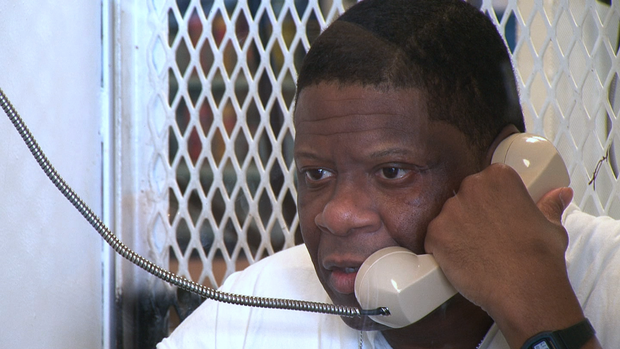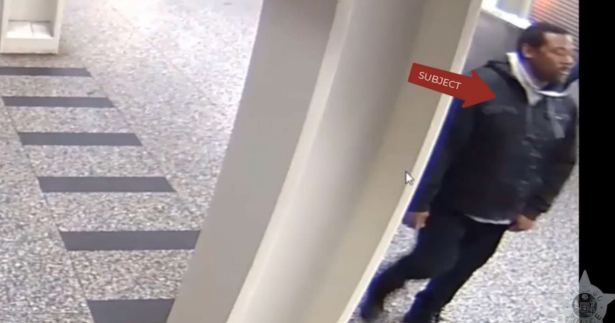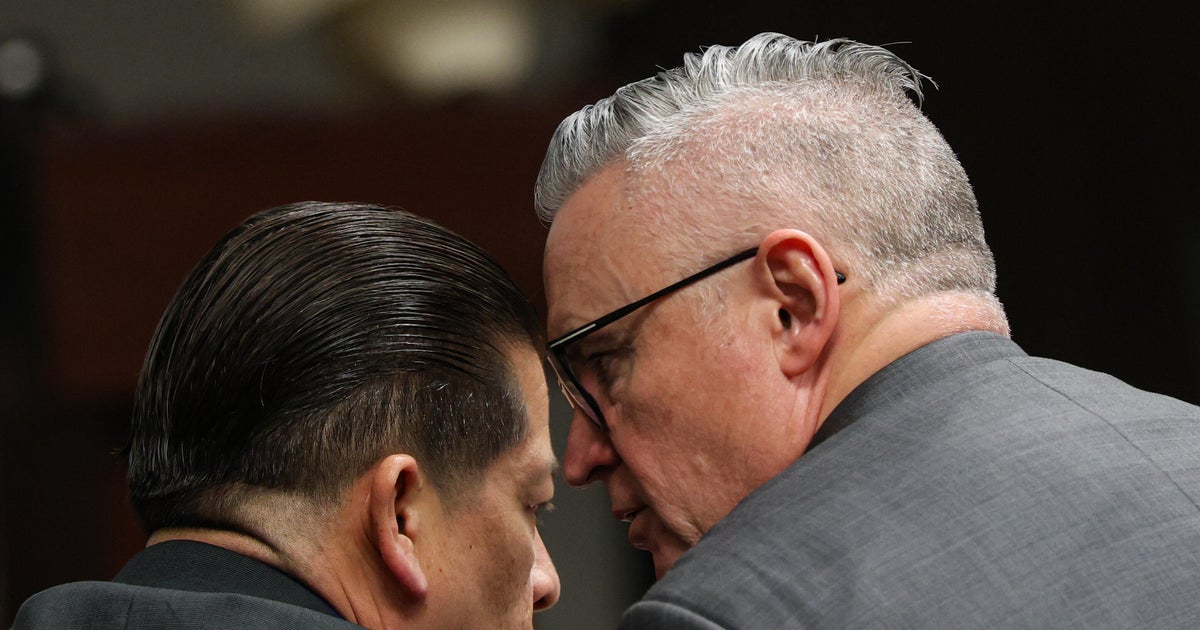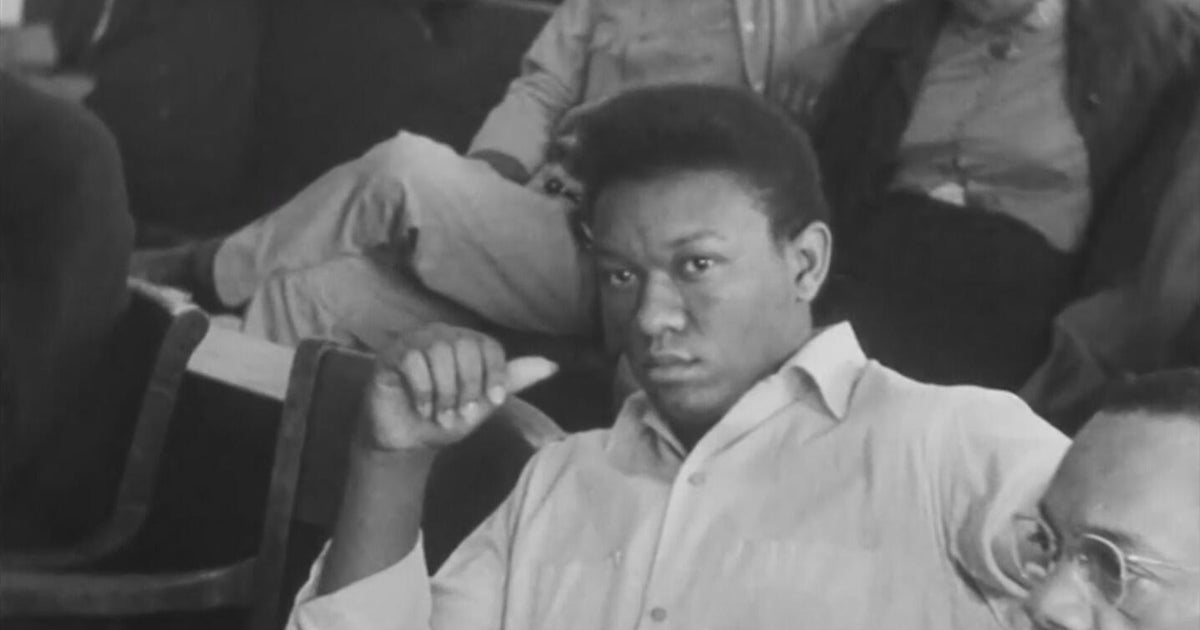Texas court of criminal appeals delays Rodney Reed's execution
A Texas appeals court has granted a stay of execution for death row inmate Rodney Reed as a growing chorus of supporters point to evidence they say casts doubt on his guilt. He was scheduled to die in five days for a 1996 rape and murder.
The Innocence Project, Reed's legal team, tweeted that the Texas Court of Criminal Appeals had granted an indefinite stay. The appeals court ruled in favor of Reed's defense team, who filed an appeal this week claiming that Reed is innocent. They claim that investigators failed to disclose crucial information that could have cleared Reed, and relied on false testimony at his 1998 murder trial. The court said those claims deserved further review and remanded the case back to the trial court.
Reed, who is black, was convicted in the 1996 murder of Stacey Stites, a white woman who was 19 years old. Prosecutors claimed Stites spent an evening at home with her fiance before she left and drove to work, and during the drive, they said Reed intercepted her, raped and strangled her and left her body in a remote area. They cited Reed's sperm found inside Stites' body as evidence of Reed's guilt.
Reed said he was having an affair with Stites and had consensual sex with her the day before her death, but he has long denied killing her. As his execution date loomed, the case gained intense national spotlight, with more than 2.9 million people signing a petition urging clemency and high-profile supporters including Kim Kardashian West, Rihanna, and Meek Mill voicing support on social media.
The Innocence Project thanked Reed's supporters in a tweet on Friday. "Thank you to all who called, tweeted, and spoke out against the execution of an innocent person," the tweet read. "Today, we celebrate. Tomorrow, we keep working to prove #RodneyReed's innocence."
Kim Kardashian West also weighed in on Twitter, writing "Today, I had the honor of meeting #RodneyReed in person and the privilege of sitting with him when he got the news that the highest court in Texas had issued a stay of execution and remanded the case back to the trial court for further consideration."
"Words cannot describe the relief and hope that swept over the room in that moment," Kardashian West added. "That hope had been building over the last few weeks around Rodney's case. We have seen Democrats and Republicans come together. We have seen grassroots activists and lawmakers link arms."
Earlier Friday, the Texas Board of Pardons and Paroles recommended that Governor Greg Abbott grant a 120-day execution reprieve. Abbott's office did not immediately return a request for comment from CBS News as to whether the governor would grant the reprieve. The governor has so far not weighed in on the case.
Reed's lawyers submitted an application for clemency to the parole board last month arguing that new witnesses have come forward that implicate Stites' fiance, former police officer Jimmy Fennell, who would later serve time in an unrelated on-duty kidnapping. One of those witnesses, a prison inmate, claimed in an affidavit that Fennell confessed to him that he killed Stites because he discovered the affair. The inmate said in his affidavit that Fennell told him during the jailhouse conversation, "I had to kill my n----r-loving fiancée."
Fennell, through his lawyer Bob Phillips, has denied wrongdoing and dismissed the claims of the new witnesses, asking why they would wait to come forward. Phillips has said Fennell was devastated by Stites' death.
In their appeal to the criminal court this week, Reed's defense team argued that Reed's due process was violated because prosecutors relied on Fennell's testimony at trial, who helped bolster the state's timeline of events. That testimony, they say, has now been called into question.
The appeal also cited the testimony of witnesses who called the relationship between Stites and Fennell abusive, including a law enforcement officer who worked with Fennell at the Bastrop County Sheriff's office. The officer, Richard Derleth, claimed that employees at the grocery store where Stites worked told him they would remain on the lookout for Fennell and tell Stites to "run and hide from Jimmy" if they saw him coming. Derleth said he relayed that information to the sheriff's office at the time.
Another Bastrop County law enforcement officer who came forward recently said Fennell had "discovered his fiancée was being unfaithful to him with someone of a different race," and said Fennell used a racial epithet, according to the defense's criminal court appeal. A third law enforcement officer from Lee County said Fennell, at Stites' funeral, said something to the effect of, "you got what you deserved."
Reed's defense team argued that had investigators revealed this information to Reed's defense at trial, it's unlikely Fennell would have testified — meaning the state would have lost its key witness. Had he testified, however, "the defense could have used this evidence, if it had been disclosed, to impeach his trial testimony, inculpate him in Ms. Stites's murder, corroborate the relationship between Ms. Stites and Mr. Reed, and refute the State's portrayal of a happily engaged couple and a grieving fiancé," the defense wrote in the criminal court appeal.
In addition, Reed's lawyers say the science prosecutors used at trial has been debunked. The petition for clemency to the parole board says that science casts doubt on the prosecution's case that Stites was raped just before she was murdered. They cite forensic experts who say that the small amount of sperm found in Stites' body supported Reed's story that he had had consensual sex with Stites the day before her murder, and that sperm could survive up to 72 hours in the body after sex. The medical examiner whose trial testimony had bolstered the state's timeline later changed his account, according to the commutation request, saying there was no evidence to indicate the presence of Reed's sperm in Stites' body was the result of a sexual assault.
The petition for clemency asked the board to recommend the 120-day reprieve or to recommend that Abbott commute Reed's sentence to life in prison. The board agreed to recommend the reprieve, but not the commutation.
Reed has also appealed his case to the U.S. Supreme Court.






